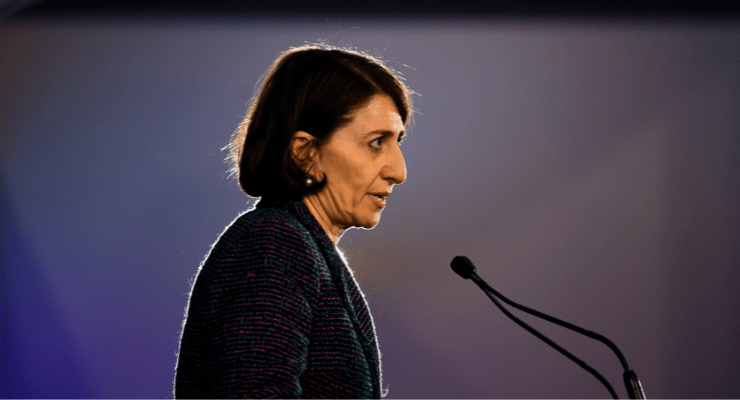
Like most everything else in the pandemic, perspectives on the performance of the media depend pretty much entirely on one’s partisanship or ideology.
“The media gave Daniel Andrews a hard time but let Gladys Berejiklian off lightly” is a widespread complaint on social media. Others complain that both premiers haven’t been held to account for destroying so many jobs in the name of an hysterical overreaction to a virus no worse than the flu.
Some of that boils down to people’s desire to see journalists remorselessly attacking politicians they dislike, rather than trying to hold them to account, which is a very different thing. But it’s mostly driven by where you sit on the political spectrum.
But Berejiklian’s decision to abandon daily media conferences on the NSW Delta outbreak — although she generously decided to do one today — has achieved a relative moment of unity across the spectrum: no one thinks it’s a good look or good for accountability. Only Berejiklian apologist Aaron Patrick tried to justify it, portraying the premier as the victim of a “baying mob”. Even his editor argued she should front the media “several times a week”.
There’s considerable speculation Berejiklian doesn’t want to be walking out every day to face questions about her spectacular misjudgment in continuing a relationship with disgraced MP Daryl Maguire. But as it stands, she has more than enough to fear scrutiny over — regardless of ICAC.
Not merely has she been responsible for the nation’s biggest outbreak of COVID-19 — which has spread to Victoria, the ACT and New Zealand, and led to a death toll of 231 — but there is the way COVID was allowed to spread into far western NSW and into Indigenous communities with low vaccination rates, a responsibility that the NSW government shares with the Commonwealth.
And Berejiklian herself suggests the NSW health system has yet to be placed under its fullest pressure — a test on which many lives depend.
The small number of people who are unfussed about the premier abandoning press scrutiny at such a time point out that media conferences are a poor method of accountability, with journalists yelling over each other, failing to follow up questions that fail to get a decent answer, and being more interested in some sort of “gotcha” moment than genuine rigour.
All fair points: traditional media conferences are of limited utility when it comes to applying pressure over issues of detail (especially when Berejiklian insists on winding them up well before journalists run out of questions), something Victorian government ministers avoid.
One-on-one interviews with journalists who know their subject are the best form of media scrutiny, although even then experienced politicians like Scott Morrison can lie, evade questions, “reject the premise of your question” and stick to talking points regardless of what they’re asked.
But there’s no constitutional rule requiring media conferences of the standard format. It’s a joint creation of politicians and journalists, one that privileges mainstream media journalists and the agendas of their editors and producers.
What we never see outside election campaigns is politicians talking to actual voters who might have very different questions, and who can’t be abused with the same tricks that work on journalists — telling a voter “I reject the premise of your question” isn’t going to be a particularly good look; telling a blatant lie to a voter will look even worse.
If Berejiklian doesn’t like fronting up to squads of journalists, there are other mechanisms by which she could provide some accountability.
But as we’ve discovered from Morrison, a new generation of conservative politicians will do all they can to avoid genuine scrutiny and accountability, convinced that their efforts to do so will never be noted by the electorate — only by journalists who, as we know so well, aren’t any more trusted than politicians.








Crikey is committed to hosting lively discussions. Help us keep the conversation useful, interesting and welcoming. We aim to publish comments quickly in the interest of promoting robust conversation, but we’re a small team and we deploy filters to protect against legal risk. Occasionally your comment may be held up while we review, but we’re working as fast as we can to keep the conversation rolling.
The Crikey comment section is members-only content. Please subscribe to leave a comment.
The Crikey comment section is members-only content. Please login to leave a comment.